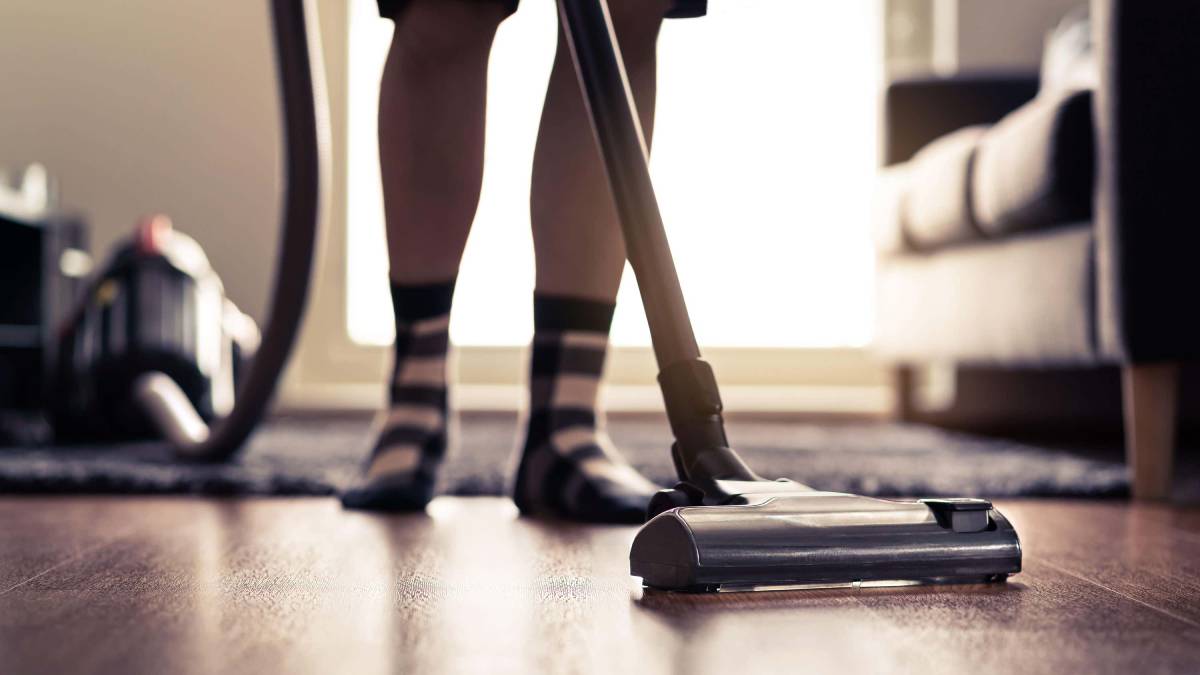Modern women are still doing traditional household multitasking chores, while men focus on solo tasks such as mowing the lawn, new research shows.
But although the idea of ‘women’s work’ is still firmly entrenched in today’s society, the small Aston University study found men are doing much more household work than they did 50 years ago.
Sociology and policy lecturer Dr Emily Christopher, who interviewed 25 couples for the study, found that ‘woman-type’ chores often involve multitasking and doing things such as remembering birthdays and if children need their sports kits, while men’s roles tend to involve solo duties centred around machinery and perceived physical strength.
But she stressed that past research has found women still perform the ‘lion’s share’ of household work, although some tasks have ‘shifted’ over the years.
Really enjoyed presenting my research on domestic divisions of labour during the pandemic and beyond at #britsoc23 this morning and listening to fascinating presentations by @JoyProbyn and @LisaMor71178061.
— Dr Emily Christopher (@dr_echristopher) April 12, 2023
“In the couples I’ve interviewed, even though men are doing more housework tasks than they may have done historically, the majority continue to be responsible for ‘man-type’ tasks such as mowing the lawn and certain DIY tasks that are often time independent and tend to be done solo,” she explained.
“Many of the tasks women are responsible for are being carried out simultaneously with other household tasks – this includes the cognitive labour of household management, which continues to be done overwhelmingly by women.”
The study found one of the tasks that has shifted a little to men is cooking, and Dr Christopher explained: “Men are more likely to do this now. Arguably, this might be because they are less likely to be seen as less masculine for doing so, helped by the rise of celebrity chefs such as Gordon Ramsay, Rick Stein and Jamie Oliver.”
She said there was “general agreement” among the couples she interviewed that household work should be shared, but stressed that women still perform most of the work and this stemmed from the “age-old idea” of women being more caring and nurturing, which was “deeply embedded in the way society thinks”.
She found tasks that are still “overwhelmingly gendered” today include women remembering birthdays, organising presents and remembering whether a child needs money for a cake sale – in other words, all the thinking behind, or cognitive labour, of household management.
“The problem is it’s invisible, so it isn’t recognised as work,” she pointed out.
View this post on Instagram
Men tend to do the ironing if they find it enjoyable, she said, often while listening to football or music, or if they have particular standards, such as creases in their sleeves. But some women choose ironing as a “form of protest”, doing their own and their children’s clothes but refusing to iron men’s shirts.
The research also found men are more likely to wash up and stack the dishwasher but, like ironing, men doing these tasks was often driven by standards such as liking dishes stacked a particular way.
Men are also more likely to vacuum than to clean, which fell mostly to women, with Dr Christopher suggesting: “I wonder whether this is something to do with the fact that vacuuming involves technology and machinery, so it conceptualises more as a masculine form of housework.”
Similarly, men are more likely to do outside jobs such as DIY, washing the car and mowing the lawn, she said, with the emphasis again on physical strength.
And tasks that men are more likely to be responsible for, such as DIY, are less likely to interfere with their paid work, whereas tasks done by women often involve a reduction in the hours they’d be able to complete paid work, and this could have wide implications, such as a gender pay gap, restrictions in career progression, and restricted access to pensions in later life.
As a result, she said the state needs to do more, particularly around parental leave and the lack of affordable childcare provision. She said couples are increasingly relying on their parents for help with childcare, and “interestingly, it tends to be the grandmothers who take on this work”.
Dr Christopher stressed her findings were based on the sample of participants she spoke to, and added: “So it cannot be said to apply to all men and women – I am making no generalisations to the population here.”
How do you divide household chores? Are you happy with the division of labour? Let us know in the comments section below.
Also read: How to make chores quicker and easier
– With PA


Didn’t survey me did they….
I agree with SOME of the article. I do the ironing – always have as when I worked a clean pressed shirt was a requirement. And while I was doing the ironing, why not do dhte kids uniforms and her blouses etc. That was when we had kids and worked. Now retired, I still do the ironing.
And the washing up/dishwasher stacking and unloading.
And the vacuuming/cleaning.
And pay ALL the bills (always have). Including all medical bills. Always have.
And the outside work, mowing, cleaning, trees, garden, dog poo, Always have.
And any reapirs or replacement of appliances – always have.
Didn’t survey me did they.